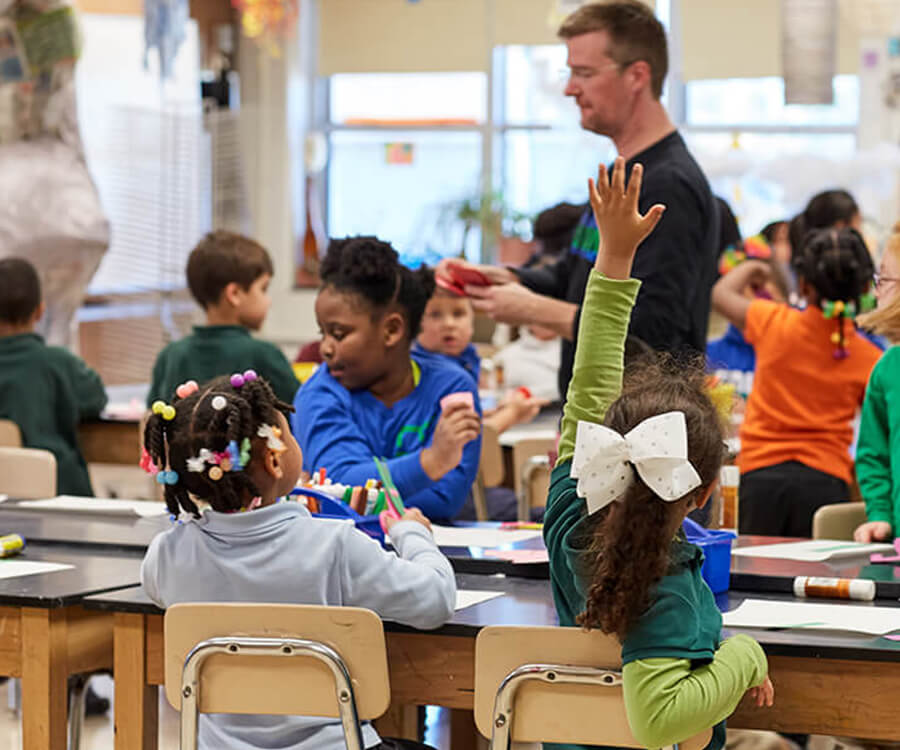Uncertainty is Not an Excuse to Remain on the Sidelines
by Kay Mason, Executive Assistant to the CEO
Prior to the last couple of years in my job at The Mind Trust, I had no frame of reference for the phrase “racial equity” or why that might be important. I had spent my whole life thinking it was enough to try to treat everyone the same, buying into the myth of colorblindness as a sort of virtue.
So when we started our organizational journey to pursue antiracism and fully embrace the opportunities that came along with operating from a lens of racial equity, I was nervous. Not because I disagreed with the pursuit of racial equity, but because I could see the vulnerability this work would require and I was afraid of saying something wrong or not knowing what to do with this new learning.
Yet through our whole-team monthly development sessions, book studies, and numerous private conversations with staff and family, I have grown, I have learned, and I have gotten braver. Missteps have been made but I have seen the benefit of being called out and called in, shown the error of my ways and thinking and given the space to grow and repair any hurt that I’ve caused in my journey.
I’ve begun to prioritize talking about race with two close friends. Just a couple years ago, I never would have broached the topic with anyone in my close personal circle. But I know that it is imperative to share my learning with others because I recognize how much I didn’t know or understand, simply because I had never been challenged in this regard.
My growth, and the new understanding that growth has given me, has allowed me to connect to the pursuit of racial equity in deep, personal ways. Previously, I wouldn’t have been able to pinpoint how racial issues impacted me, even as I worked alongside people of color and built friendships with them. Once I understood how race impacted their lives on a daily basis, my mother-bear instinct ignited. I was in this fight with them, recognizing I have a role to play.
The most recent book our staff has engaged (So You Want to Talk About Race by Ijeoma Oluo) has been especially formative for me. Three concepts from the book, in just its first two chapters, have ingrained themselves in my mind:
- Race impacts every aspect of our lives;
- Race effects what we bring to our interactions, especially cross-racial interactions; and
- If a person of color thinks something is about race, then it is.
I was especially challenged by that last concept. I think it is so important for myself and for others to embrace it as we seek to chart a better path forward. I believe it is a recognition that intent never tops impact. And I have come to own my impact.
I know it would be easier to look the other way in the face of injustice. But it would be unconscionable to me because I know how negatively it impacts people I love and care for, especially the Black women I have had the privilege to forge friendships with. As a mother, I have a deep awe and admiration for the perseverance and courage embodied by so many Black mothers throughout our country’s history. Often without receiving credit, and often being actively erased from the narrative, they have constantly forged ahead, creating new spaces of democracy and freedom for their descendants—for all of us, really.
If the last couple of years have taught me anything, it’s that I’m committed to being in those trenches now too. I’m committed to pursuing antiracism for myself, my organization, and my community. I still flounder at times, uncertain how or where to have the right impact. But that uncertainty is no longer an excuse to remain on the sidelines.

